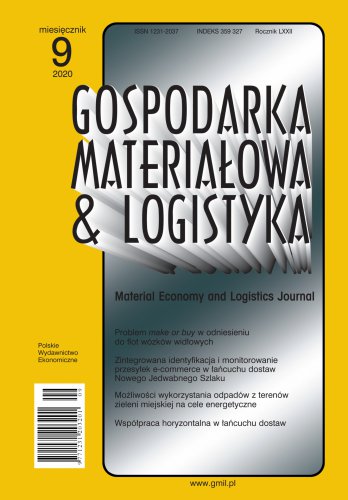The subject of this paper is horizontal cooperation in logistics. This type of cooperation takes place by creating a common transport system in which all of its participants share the transport network and their resources. Horizontal cooperation between companies in the supply chain is an important research area because fierce competition in global markets, rising costs and increased customer expectations have resulted in a decrease in the profits of organizations. Involvement in horizontal logistics cooperation provides various opportunities to improve productivity and supply chain performance. However, forming alliances in the logistics industry involves taking up challenges that can be formulated as follows: What factors hamper cooperation?
The purpose of this paper is to analyze the determinants and barriers in the development of horizontal cooperation between logistics companies in supply chains. The method of literature analysis was used in the paper to verify the current level of knowledge concerning horizontal cooperation in supply chains. The expected research results will contribute to the systematization of knowledge concerning the implementation of cooperation in the logistics industry, which will improve the level of theoretical knowledge in the fields of economics, management and logistics. In addition, the results of the research may be used by decision-makers, researchers and organizations as a basis for designing and planning horizontal cooperation in supply chains, and also as a guide to conduct research on the current state of literature in a given field.
Keywords: logistics; supply chain management; horizontal cooperation

